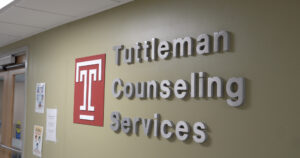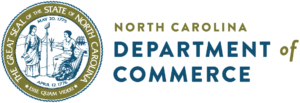Ensuring that all students have access to nutritious meals is a key focus for North Carolina schools, as announced by the North Carolina Department of Public Instruction. The state is implementing the USDA’s 2024-2025 policy for free and reduced-price meals, emphasizing the importance of healthy school meals in enhancing student health and academic performance.
State Superintendent Catherine Truitt emphasized the link between nutrition and learning, stating, “Research shows us that access to healthful meals at school can enhance students’ overall health and academic performance.” Truitt highlighted the negative impact of hunger on learning, pointing out that well-nourished students perform better academically.
Eligibility and Income Guidelines
The federal income eligibility guidelines for free and reduced-price meals are effective from July 1, 2024, through June 30, 2025. These guidelines set the criteria for determining student eligibility based on household size and income.
| Household Size | ANNUAL | MONTHLY | TWICE PER MONTH | EVERY TWO WEEKS | WEEKLY | |||||
|---|---|---|---|---|---|---|---|---|---|---|
| Free | Reduced | Free | Reduced | Free | Reduced | Free | Reduced | Free | Reduced | |
| 1 | 19,578 | 27,861 | 1,632 | 2,322 | 816 | 1,161 | 753 | 1,072 | 377 | 536 |
| 2 | 26,572 | 37,814 | 2,215 | 3,152 | 1,108 | 1,576 | 1,022 | 1,455 | 511 | 728 |
| 3 | 33,566 | 47,767 | 2,798 | 3,981 | 1,399 | 1,991 | 1,291 | 1,838 | 646 | 919 |
| 4 | 40,560 | 57,720 | 3,380 | 4,810 | 1,690 | 2,405 | 1,560 | 2,220 | 780 | 1,110 |
| 5 | 47,554 | 67,673 | 3,963 | 5,640 | 1,982 | 2,820 | 1,829 | 2,603 | 915 | 1,302 |
| 6 | 54,548 | 77,626 | 4,546 | 6,469 | 2,273 | 3,235 | 2,098 | 2,986 | 1,049 | 1,493 |
| 7 | 61,542 | 87,579 | 5,129 | 7,299 | 2,565 | 3,650 | 2,367 | 3,369 | 1,184 | 1,685 |
| 8 | 68,536 | 97,532 | 5,712 | 8,128 | 2,856 | 4,064 | 2,636 | 3,752 | 1,318 | 1,876 |
| For each additional household member | ||||||||||
| Add: | 6,994 | 9,953 | 583 | 830 | 292 | 415 | 269 | 383 | 135 | 192 |
Eligibility is determined based on household income and size, with automatic eligibility granted to children in households receiving benefits from programs like SNAP or CA. Foster children under the legal responsibility of a social services agency or court are also eligible for free meals, regardless of the household income where they reside.
Application Process
Applications for free and reduced-price meals are available to all households, accessible at each school’s principal’s office. These applications not only determine eligibility for school-year meals but also for Summer-Electronic Benefits Transfer (S-EBT) during school breaks. Families approved for FNS or CA do not need to apply separately as they are automatically certified.
To apply, an adult household member must sign and include the names and income of all household members, as well as the last four digits of their social security number. The applications are subject to verification any time during the school year.
Policy and Appeals
The School Nutrition Administrator reviews and determines eligibility. If parents disagree with a decision, they can discuss it informally or formally request an appeal. Changes in household size or employment status can also affect eligibility, so families are encouraged to report such changes promptly.
Frequently Asked Questions:
Who can Receive free or Reduced Price meals?
- All children in households receiving benefits from Food and Nutrition Services (FNS, formerly known as Food Stamps), the Food Distribution Program on Indian Reservations (FDPIR) or Cash Assistance (CA), are eligible for free meals.
- Foster children that are under the legal responsibility of a foster care agency or court are eligible for free meals.
- Children participating in their school’s federally funded Head Start program are eligible for free meals.
- Children who meet the definition of homeless, runaway or migrant are eligible for free meals.
- Children may receive free or reduced-price meals if a household’s income is within the limits on the Federal Income Eligibility Guidelines.
How do I know if my children qualify as homeless, migrant or runaway?
Do the members of your household lack a permanent address? Are you staying together in a shelter, hotel or other temporary housing arrangement? Does your family relocate on a seasonal basis? Are any children living with you who have chosen to leave their prior family or household?
Can homeless, runaway and migrant children receive free meals?
Yes, children who meet the definition of homeless, runaway or migrant qualify for free meals. If your children meet the definition of homeless, runaway or migrant but have not been informed that they will get free meals, contact the school’s homeless, runaway or migrant liaison.
Do I need to fill out an application for each child?
No. Use one Free and Reduced-price School Meals Application for all students in your household.
Should I fill out an application if I received a letter this school year saying my children are already approved for free meals?
No, but please read the letter you got carefully and follow the instructions. If any children in your household were missing from your eligibility notification, contact the School Nutrition Administrator in your school district immediately. Please keep the letter indicating your child(ren) are eligible for meals at no cost as this letter may be used for other purposes that may reduce the cost of other services for your child(ren).
My child’s application was approved last year. Do I need to fill out a new one?
Yes. Your child’s application is only good for that school year and for the first few days of this school year. You must send in a new application unless the school told you that your child is eligible for the new school year. If you do not send in a new application that is approved by the school or you have not been notified that your child is eligible for free meals, your child will be charged the full price for meals.
If children qualify for free or reduced price meals at school, can they receive summer – electronic benefits transfer (S-EBT or “Sun Bucks”)?
The household application for free or reduced priced meal benefits may also help determine whether your child(ren) is eligible for Summer-Electronic Benefits Transfer (S-EBT) or “Sun Bucks.” Students who are enrolled in a school that participates in the National School Lunch Program and are eligible for free or reduced-price meals are automatically eligible to receive Sun Bucks as long as the student is enrolled in a school that participates in the National School Lunch Program on or before May 1 each year. Be sure to keep the letter stating your child(ren) is eligible for free or reduced-price meals because the letter may be used to confirm eligibility for Sun-Bucks if needed. Parents may also complete a separate application for “Sun Bucks” food assistance by completing the “Sun Bucks” application provided through the NC Department of Health and Human Services. The application is available at: SUN Bucks 2024 Application.
Can foster children receive free meals?
Yes, foster children that are under the legal responsibility of a foster care agency or court are eligible for free meals. Any foster child in the household is eligible for free meals regardless of income.
Can children enrolled in a school’s federally funded head start program receive free meals?
If your children meet this criterion and you have not been informed that they will get free meals, you must contact the School Nutrition Administrator in your school district.
Who can receive reduced price meals?
Children from families whose total household income is within the reduced priced limits on the Federal Income Eligibility Guidelines Chart can get school meals at no cost. The N.C. General Assembly has appropriated funds to pay the student copay for reduced price meals of 30 cents for breakfast and 40 cents for lunch. This means reduced price meals are available to all students in the household that qualify for reduced price meals at no cost to the household. Contact the school’s School Nutrition Administrator for specific details about this provision in your school.
I get WIC. Can my children get free meals?
Children in households participating in WIC may be eligible for free or reduced priced meals. Please send in an application.
Will the information I give be checked?
Yes. We may also ask you to send written proof of the household income you report.
If I don’t qualify now, may I apply later?
Yes, you may apply at any time during the school year. For example, children with a parent or guardian who becomes unemployed may become eligible for free and reduced-price meals if the household income drops below the income limit.
What if I disagree with the school’s decision about my application?
You should talk to the district’s School Nutrition Administrator, or you also may ask for a hearing by calling or writing to the School Nutrition Office.
May I apply if someone in my household is not a U.S. citizen?
Yes. You, your children, or other household members do not have to be U.S. citizens to apply for free or reduced priced meals.
Who should you include as members of your household?
You must include all people living in your household, related or not (such as grandparents, other relatives or friends) who share income and expenses. You must include yourself and all children who live with you. If you live with other people who are economically independent (for example, people who you do not support, who do not share income with you or your children and who pay a prorated share of expenses), do not include them.
What if my income is not always the same?
List the amount that you usually receive. For example, if you normally make $1000 each month, but you missed some work last month and only made $900, put down that you made $1000 per month. If you normally get overtime, include it, but do not include it if you only work overtime sometimes. If you have lost a job or had your hours or wages reduced, use your current income.
What if some household members have no income to report?
Household members may not receive some types of income we ask you to report on the application or may not receive income at all. Whenever this happens, please write 0 in the field. However, if any income fields are left empty or blank, those will also be counted as zeroes. Please be careful when leaving income fields blank, as we will assume you meant to do so.
We are in the military. Do we report our income differently?
Your basic pay and cash bonuses must be reported as income. If you get any cash value allowances for off-base housing, food or clothing, or receive Family Subsistence Supplemental Allowance payments, it must also be included as income. However, if your housing is part of the Military Housing Privatization Initiative, do not include your housing allowance as income. Any additional combat pay resulting from deployment is also excluded from income.
My spouse is deployed to a combat zone. Is his/her combat pay counted as income?
No. If the combat pay is received in addition to his/her basic pay because of his/her deployment and it wasn’t received before he/she was deployed, combat pay is not counted as income. Contact the district’s School Nutrition Administrator for more information.
What if there isn’t enough space on the application for my family?
List any additional household members on a separate piece of paper and attach it to your application. You may also contact the local School Nutrition Office to receive a second application.
My family needs more help. Are there other programs we might apply for?
To find out how to apply for Food and Nutrition Services (FNS, formerly Food Stamps) or other assistance benefits, contact your local assistance office or call The Careline at 1-800-662-7030. For more information, contact the Office of School Nutrition of the North Carolina Department of Public Instruction at (984) 236-2910 or contact the School Nutrition Administrator in the school district, charter school or non-public school of other participating institution in which your child is enrolled.
In accordance with federal civil rights law and U.S. Department of Agriculture (USDA) civil rights regulations and policies, this institution is prohibited from discriminating on the basis of race, color, national origin, sex (including gender identity and sexual orientation), disability, age, or reprisal or retaliation for prior civil rights activity.
Program information may be made available in languages other than English. Persons with disabilities who require alternative means of communication to obtain program information (e.g., Braille, large print, audiotape, American Sign Language), should contact the responsible state or local agency that administers the program or USDA’s TARGET Center at (202) 720-2600 (voice and TTY) or contact USDA through the Federal Relay Service at (800) 877-8339.
To file a program discrimination complaint, a Complainant should complete a Form AD-3027, USDA Program Discrimination Complaint Form which can be obtained online at: U.S. Department of Agriculture USDA Program Discrimination Complaint Form, from any USDA office, by calling (866) 632-9992, or by writing a letter addressed to USDA. The letter must contain the complainant’s name, address, telephone number, and a written description of the alleged discriminatory action in sufficient detail to inform the Assistant Secretary for Civil Rights (ASCR) about the nature and date of an alleged civil rights violation. The completed AD-3027 form or letter must be submitted to USDA by:
- Mail:
U.S. Department of Agriculture
Office of the Assistant Secretary for Civil Rights
1400 Independence Avenue, SW
Washington, D.C. 20250-9410; or - Fax:
(833) 256-1665 or (202) 690-7442; or - Email:
[email protected]
This institution is an equal opportunity provider.
Read More Here











